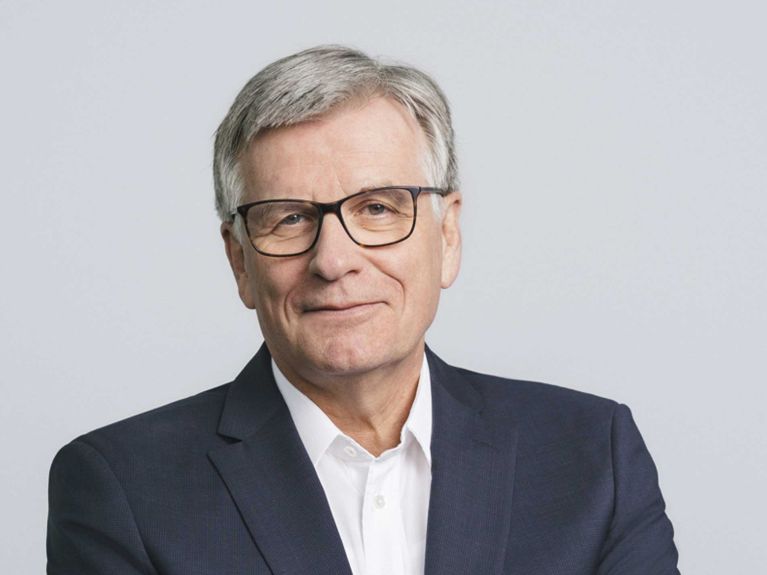“More free trade”
The Asia-Pacific Conference of German Business will be taking place in Jakarta at the beginning of November. Asia speaker Hubert Lienhard explains why now in particular the region is so very important.

Dr. Lienhard, you are the chair of the Asia-Pacific Committee of German Business. How important is the region to German business?
The Asian markets are of fundamental importance to German business. The region is Germany’s second-largest trading partner after the Single European Market. In 2017, almost 15 percent of all German exports worth a total of €186 billion headed for Asia. Last year, the volume of trade between Germany and Asia grew by more than €35 billion to €391 billion. This underscores how very crucial the region is to German companies in business terms. Extending these relationships, even in those markets which are not yet really on our radar, is becoming increasingly important. Particularly in view of the growing trade conflict between the United States and China.
Our export figures are showing their first signs of slowing down.
To what extent is German business affected by this trade conflict?
German export figures are currently already exhibiting first signs of slowing down because of the trade conflict between the United States and China. And although the majority of our exports are still destined for our neighbouring European countries, China and the United States are still important markets for us. Last year some nine percent of German goods exported went to the United States and around seven percent to China. In Germany, a quarter of all jobs rely on the export trade. This explains why our main headache at the moment is that the trade conflict between China and the United States is having a negative impact on the global economy.

What are the most important topics at the Asia-Pacific Conference?
One focus is on the discussion about the advantages and disadvantages of free trade and the reform requirements in the multilateral trading regime and the WTO. Another key area is the development of infrastructure in Asia. This year, the subject of digitisation is also much more strongly on the conference agenda than in previous years: We have set up discussion forums on Industry 4.0, the mobility of tomorrow, artificial intelligence, and cyber-security. One firmly established element of the Asia-Pacific Conference is to join forces with experts to examine the security situation in the region, something that of course impacts on the activities conducted by companies on the ground.
Further free trade agreements are currently in the process of being negotiated.
The EU has just concluded a free trade agreement with Japan. Should this kind of thing be the aim for other Asian countries as well?
Absolutely! The free trade agreement with South Korea, the first of its kind in the region, has been in force since 2011. It has definitely impacted favourably on the volume of trade between Germany and South Korea. The agreement was intended as an incentive for further agreements. This year, the EU and Japan signed their own free trade agreement, which involves no less than one third of the global GDP. Negotiations have been concluded concerning an agreement with Vietnam and Singapore, the agreement with Singapore was signed recently on the fringes of the ASEM summit in Brussels. The agreement with Vietnam is on the verge of being completely. Further free trade agreements are currently being negotiated with ASEAN members Australia and New Zealand.
The 2018 Asia-Pacific Conference is taking place at the ASEAN headquarters in Jakarta. Can this be seen as a pointer?
In 2017, trade between Germany and the ASEAN accounted for more than €65 billion. The latter confederation of states is thus Germany’s 13th largest trading partner. Some 300 German companies are active in the ASEAN region. With Indonesia as host nation we have been able to recruit an important partner in the region. What tipped the scales in Indonesia’s favour was the size of the country’s population, its growth prospects which are, according to the IMF, held steady in 2017 and 2018 at a good five percent, Indonesia’s close links to its other partners in the ASEAN community, and the fact that, as the world’s largest Muslim country, Indonesia is of great supra-regional importance. In the 1980s and 1990s there were close links between Indonesia and Germany. These links have been somewhat neglected on the German side over the past 15 years. I am sure that with the Asia-Pacific Committee we will be able to reverse this trend.
Interview: Martin Orth
Newsletter #UpdateGermany: You would like to receive regular information about Germany? Subscribe here to:
